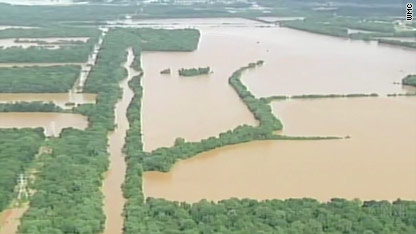In the house I grew up in, there were three trees in our front yard. They were old and not extremely healthy, often dropping large, dead branches in thunderstorms, but my dad refused to cut them down. Our house sat on a busy local highway, and those trees created a barrier between the road and our front door.
The trees served other purposes as well, including being a meeting point for my family in the case of a house fire. My mother, ever cautious about what tragedies could befall her home, taught us at early ages how to break a window properly to ensure a safe escape, and where to meet for a head count.
Every family should identify a similar meeting place in their neighborhood. In addition, two other meeting places can prove helpful in an emergency: 1) Outside the neighborhood, but in town; and 2) Outside of town.
A location in the neighborhood gives your family a place to go in a fire or other emergency isolated to your house or building. It should be close to the home, but far enough away from potential flames and other dangers to keep the members of your family out of harm's way. Locate this safe spot as a family, and practice going there regularly.
For a tornado, flood, or other disaster that compromises your home
and your neighborhood, find a second meeting place in or near your town. Emergency shelters can serve as a good point for these types of emergencies, as they are often determined well in advance of a disaster by your local emergency management agency, and will be the place you are directed or taken to in these events. If there is more than one shelter, pick one to go to, know how to identify it to rescuers, and travel to it as a family so that you become familiar with the location and how to get there.
Finally, find an out-of-town friend or family member to call or go to if a disaster forces you out of your home
and your community. Teach their phone number to all family numbers (don't just put it in your cell phone and forget it!), and memorize their address as well. Even if you can't get there, teach your family members how to check in with this friend, identifying each family member's location and status, in order to ensure that everyone is accounted for in an large-scale disaster.
Not only will these steps ease your mind in an emergency, but they will also prevent needless endangerment to rescue workers. If we don't know our family is safe, we may request action of these public servants, sending them into dangerous situations to rescue a person they won't find. Building the trust that our family will follow protocol in an emergency allows us to accurately sound the alarm if someone
is missing, helping to ensure a swift rescue.




















































